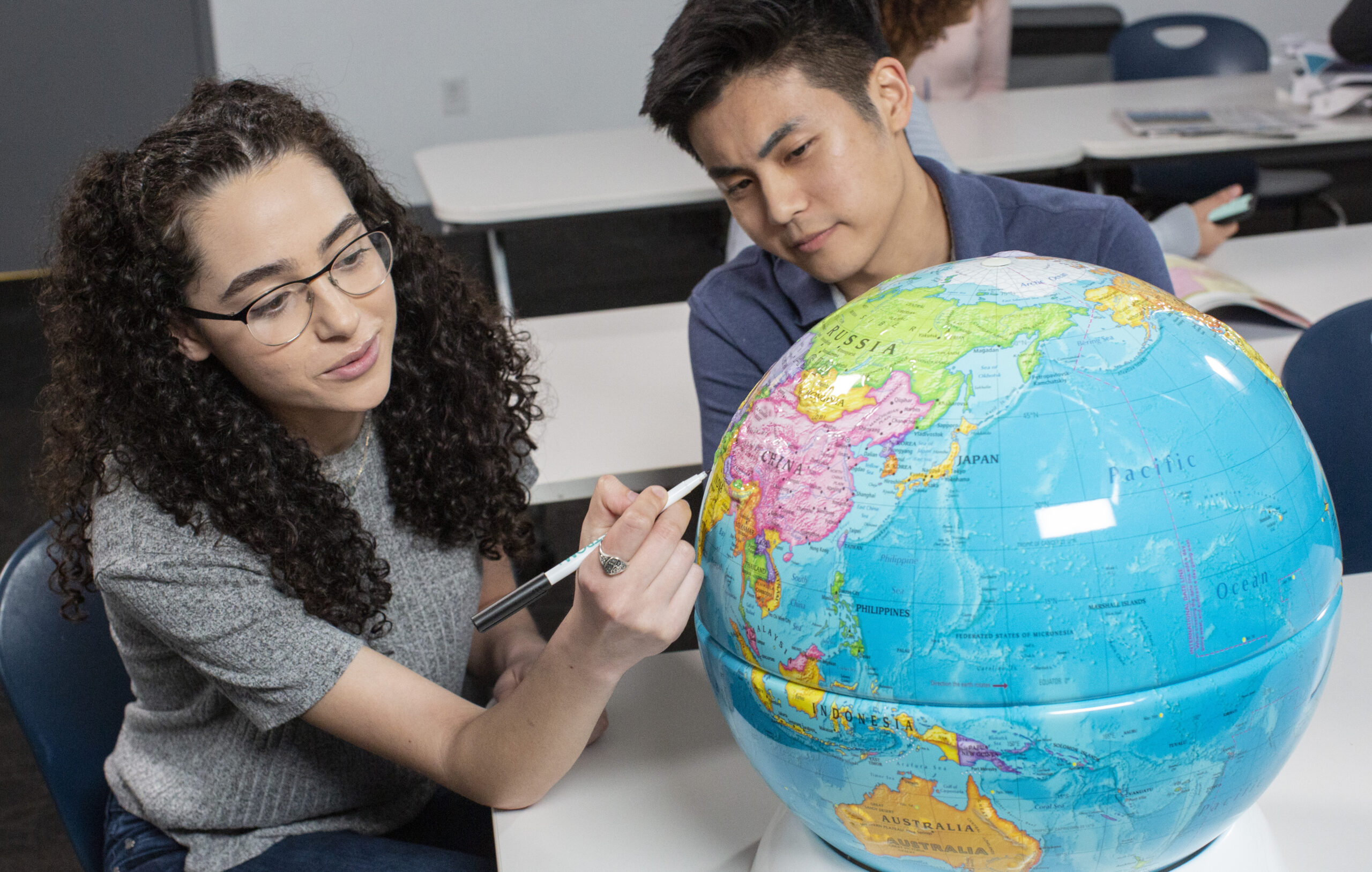
In my relatively short time teaching, I have been asked this question numerous times by secondary students: Why are we learning social studies? What’s the point? Why do we need to learn it? Other teachers I have taught with have also been asked this question, which has always fascinated me.
As a student, I always loved social studies! However, those who are not interested in social studies find themselves entrenched in this question. There is not one single answer that covers the entirety of of social studies or why it’s an important subject to learn. The answer can be found in its multidisciplinary nature and looking at each subject: geography, history, government, and economics. Read on to find out more!
Geography
Geography at the secondary level teaches necessary skills that are essential for everyday life. The most important skill that geography teaches is map skills. Knowing how to read a map is important for basic navigational skills and being engaged and able to plan a route. Students often use those map skills when recounting where they live, when giving directions, or using the mental map inside their mind to navigate an environment.
Geography also teaches more than just maps and physical features, it also covers population distribution. Knowing about where people live and why they live there will help students understand why their parents decided to live where they do, or why cities and towns exist where they do. This is essential for students to get a better understanding of their own history and context for where they reside. Similarly, geography covers patterns of migration and the conditions that cause mass migrations of people (which is also covered in economics). Geography teaches the key navigation skills students need to map their own world around them and informs students about why people reside in certain places, move, and about physical parts of our environment.
Additionally, knowing national or state capitals is essential to being an informed citizen. (This key idea will run through the rest of this post.) Knowing countries’ locations and capitals also allows students to be well-informed citizens. This also applies to the study of history, which is our next multidiscipline discussed.
History
The study of history is important; that is not lost on anyone reading this post. However, many students (and even some adults) find themselves wondering why history is studied in social studies classrooms. As common as this saying is, it will always ring true: “Those that fail to learn from history are doomed to repeat it.” (George Santayana/Winston Churchill) If no one learns history, they will make the same mistakes in the future that were made in the past.
The study of history also allows students to make connections to the present because past decisions directly influence present conditions. As students make these connections to their present with the past, they will develop critical thinking skills that will help them as they grow and learn more about the world around them.
Studying history can often include images of violence and terror among humans, so why do students need to see these things? As mentioned previously, past conditions have a direct and indirect influence on the present. The violence of WWI, WWII, and the brutality of American police forces during the Civil Rights Movement of the 1960s, just to name a few examples, can all be compared and contrasted to today’s events. Ask students to consider modern events like the War on Terror or recent events of American police brutality to help students make connections about how the past affects the present and see past cycles repeated throughout history.
Naturally, students will ask why certain historical events took place or how important political decisions, like going to war, were made. The answers to these questions can be found by studying the systems and functions of government and continuing to connect the various social studies subjects for students.

Government & Civics
The study of government and civics introduces, or reinforces, depending on your grade level, key concepts that students must understand to be productive and successful citizens in society. Government helps students understand the context of key historical events due to political decisions that led to events like both World Wars and the Holocaust (for the sake of example). Studying the governments that made these choices clues students in on how those governments functioned.
Students need to learn about how their governments function otherwise, they will not be able to effectively participate as citizens. Studying government in social studies also teaches students about citizenship, community, and active participation in both, which is important to the development of critical thinking skills. If students understand that they can participate in their government, they can begin to think about their government’s impact on society and their individual lives. They will also gain an understanding of rights and liberties when they study their own government. Civics and government can also teach students about other countries throughout the world with different types of government, which grant their own citizens different rights or liberties.
Economics
The study of economics and personal finance is considered to be one of the more “boring” subjects in secondary social studies. It involves math calculations and a lot of talk about money and trade; not always a winner among students. Economics units usually begin by teaching different types of economic systems. Knowledge of these economic systems allows students to gain an understanding of how the economy functions and teaches that students interact with the economy daily without realizing it. Whether it’s buying lunch at school, buying a candy bar or soda from a vending machine, or spending birthday money, students interact daily. However, this subject also teaches about trade because students will make exchanges throughout their lives. While they will likely not do much bartering, they will be exchanging money for goods and services.
Students also learn about currency exchange through economics units, which lends important information for students to learn as it opens up students to the idea that not all countries operate in the same way as the United States. Economics also circles back to the study of government because a nation’s economic system is often determined by its government. Teachers can also connect the themes to the study of geography and history because historical and geographic conditions concurrently determine the path of economic development. It could be argued that economics has the most practical applications in students’ lives, but it often receives the least attention in curricula around the world. In your secondary social studies, consider adding Personal Finance or Classroom City by Interact or to your lesson plans for an engaging simulation for students to better understand economics themes.
Social studies, and the corresponding subjects, are essential at every grade level. Learning these subjects is more than just dates, capitals, and land features, but rather one that can open up students to thinking critically about the past, present, future, and the current world around them. It gives students an understanding of their lives in a way that other subjects simply do not: history gives students a window into the past; government allows students to gain an understanding of their rights and liberties; geography teaches students essential navigational skills; and economics provides skills to navigate trade and finances. While social studies may be marginalized by other subjects, especially at the secondary level, teachers can ensure that students receive the best possible curriculum and instruction to make their students informed, engaged citizens with a wide worldview.
Set your students up for success with a wide-array of history, geography, government, and economics activities from Active Classroom
Try a free 30-day trial today
Brendan King is a blog contributor for Social Studies School Service. He loves the study of history and reading any historical work he can get his hands on. More importantly, he is passionate about teaching history and social studies in fun and unique ways. He earned his B.A. in History at the University of West Georgia and currently teaches sixth-grade social studies. His hobbies include reading, playing video games, watching movies, and exercising.

